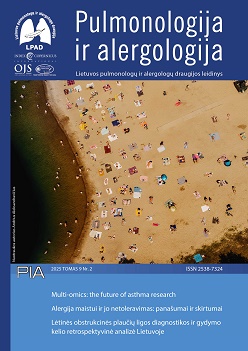Multi-omics: the future of asthma research
Abstract
Multi-omics technologies are transforming the understanding and treatment of asthma, a complex and heteroge neous chronic respiratory condition. The integration of genomics, transcriptomics, epigenomics, proteomics, metabolomics, microbiomics, and exposomics enables an in-depth analysis of asthma phenotypes, paving the way for more accurate diagnosis, risk assessment, and personalised therapy. Modern challenges in asthma management, including treatment resistance and the unpredictability of drug effects, highlight the need for precise molecular insight. Advanced tools, such as machine learning, artificial intelligence, and systems biology, offer the capacity to decode intricate biological networks and identify key biomarkers across patient subgroups. Large-scale multi-omics initiatives like Unbiased Biomarkers for the Prediction of Respiratory Disease Outcomes (U-BIOPRED), AsthmaMap, and Severe Asthma Research Program (SARP) demonstrate the potential to uncover previously unrecognized disease mechanisms and define endotype-specific therapeutic targets. Although clinical application is still developing, progress in high-throughput technologies and data integration continues to narrow the gap between research and real-world practice. Comprehensive profiling across multiple molecular layers reveals how asthma develops and progresses, offering a path toward truly personalized medicine. Asthma care’s future increasingly lies in combining biological, environmental, and clinical data into cohesive strategies for prevention, monitoring, and treatment.


